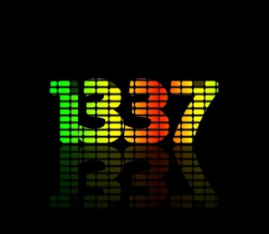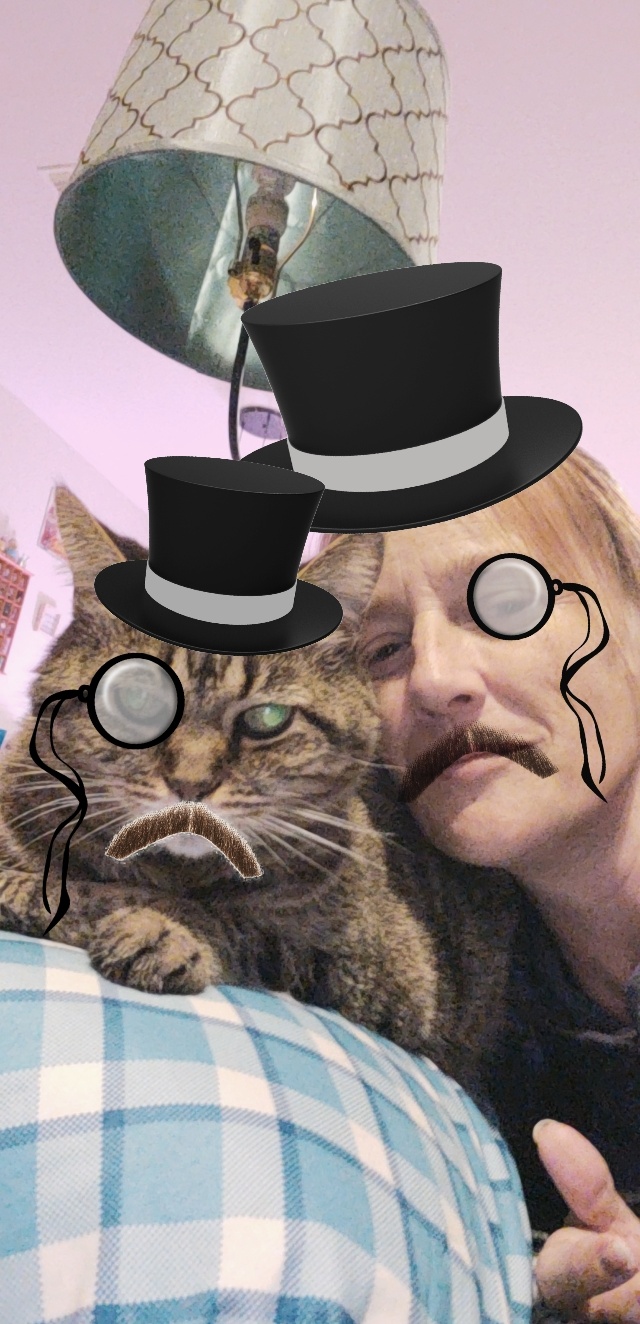- cross-posted to:
- theandrocollection@lemm.ee

Because the fuckers producing the shows make the music and sound effects 5x louder than it needs to be but the dialogue half as loud as it needs to be.

It’s because they’re mixing dialogue for the center channel speaker. Most people don’t have a center channel on their TV or sound bar, but some "Dialogue Mode"s will exclusively play the center channel and drown out the sound effects. It’s a trade off, but one that most manufacturers don’t even give the option for.

I have 5.1 and still encounter tons of shows where I need to crank the volume for dialog and then hurriedly lower it during explosions or fight scenes. This wasn’t much of an issue a few years ago on the exact same surround sound setup.

I have a 5.1 as well, and I use software normalization (Plex and through my Shield) to fix it. I know there’s a way to tune it via hardware, but my setup is an ancient Yamaha receiver and I prefer the software normalization.
Mixing can be a mixed bag, as everyone uses different hardware to master their sound, but normalization or boosting center fixes it 99% of the time.

I should give this a shot too as my setup uses all the same hardware (including the Yamaha receiver). I’ve been hesitant to have Plex level audio since it can reduce quality, but mixes are getting so bad that it’d probably improve the quality above all else.

Hm. I’ve got a basic 5.1 setup via sound bar and have dialed center up to max. It sorta works, but it makes the “surround” a lot less impactful because of the disproportionate levels (eg explosions straight ahead still boom).
I always though this was a deliberate mixing decision for “immersion”

Interesting. I’m going to have to look at my speaker systems …

There’s a couple reasons why I use subtitles all time. Firstly I’m getting older and can’t hear as well with background noise. If my wife is banging around in the kitchen I can’t hear dialog from the TV. With subtitles on I don’t have to mess with the volume.
Another issue is media producers (TV and film) have this idea they need to blast you out of your chair with sound effects and music. So if you turn up the volume enough to hear the dialog clearly, you’re going to get blasted by everything else. Trying to manage that with the volume control is damn near impossible. Interestingly I’ve noticed “dialog boost” appear on occasion in sound track options from my streaming provider. I use it when the option is there. That kind of indicates a global problem.
An issue related to sound leveling is actors used to come out of theater where they learned to annunciate loudly and clearly. It seems actors don’t get proper stage training anymore and now it’s okay to mumble and fail to annunciate. A decent director should never allow that.

Interesting to hear people have the opposite experience as me. I have a home theater and love dynamic audio (loud when supposed to be loud, quiet when supposed to be quiet) but have noticed more and more that movies seem to be mixed for iPads and sound dead. Disney/Pixar is a great example of home theater enthusiasts finding their movies just aren’t acoustically exciting anymore.
The only time I hate dynamic audio is when I’m trying to fall asleep

I always use them, otherwise I have to hold the remote the whole time and keep changing the volume. Watching Silo right now and there’s so many whispering scenes I’d never be able to make out.

On 24 Kiefer used to alternate between talking and whispering multiple times in the same sentence. Made me effing crazy.

And a few minutes after dead silent dialog, movies start blasting explosions and gunshots loud enough to wake up the whole neighborhood.

I started watching with my noise canceling AirPods through the roku app. Or just turning on subtitles.

The degradation of TV audio was inevitable once flatscreen monitors started to get really thin and big. We now sit farther than ever from our screens, which leads to higher pitched dialog getting quieter (since it attenuates faster than low pitched sounds - think about how you can hear a car stereo from around the block, but can’t hear your neighbor’s baby crying). In addition, our quest to eliminate speaker grills has led to designs that either point speakers straight down (obviously bad), or use complex sound piping to reorient sound through small openings (sorta bad).
When you add in the fact that most TV and films are now designed explicitly for surround sound and/or good headphones, you can imagine how bad things get for most people.

Ever since my first apartment, I’ve always routed my TV and my computers through a stereo system. Idk how people can stand integrated speakers.
My stereo setup is a garbage low end early 2000s bookshelf situation, but it’s still miles better than a anything I’ve heard that gets pumped out the back (the back??!) of even super expensive flat screens.

Isn’t it a possibility these expensive tvs have very little effort put into the acoustics, assuming the consumer will purchase a sound bar?

yeah, probably 🤷🏾♀️

I got fucking kids and now never have any peace anymore. That’s how that happened for me at least.

Same. I also watch tv while they’re asleep and I have to keep the volume low.

Whatever the reason, a lot of people struggle to hear dialogue now, so turning on closed captioning to decipher what people are saying has become a no brainer move.
Good to realize I am not going deaf.

I literally can’t hear some words occasionally in newer shows. I don’t need them for older shows though.

I feel you. Watched the first spider verse movie today, and I barely understood a word. It’s either whispering, or BANG CACHOW POW POWwhisperPOW.
And yes, I could just manually “fix” the sound, but that requires that I pirate or buy a physical copy first.
There was a video essay going viral about this some time ago.

That was super informative! Thank you!

I watch while my baby naps. Subtitles on, volume low because I swear to god if I wake him up…

I’m HoH and don’t like to use captions. My wife hears fine and will only use captions.
You all now know that. You’re welcome.

Thank you.

Because the mixing is usually ass on these shows

Mixing is ass on shows and movies these days.

Film producers are intentionally mixing for theaters and refusing to mix for home devices.

Are theaters still relevant today? I honestly don’t know. Have not been in one for many years, everything is just way too expensive.

Mumble mumble whisper EXPLOSION!

I believe it’s also psychological, it’s easier to concentrate when there’s written word matching the action. Our attention is diminished these days.
A striking example of how this trend is irreversible is japanese tv. You’ll see words everywhere. It’s used for emphasis but also the shows end up boring without them.

I use them just because it can provide more information. Look at them in passing when you didn’t quite make out what someone said. Also subtitles for foreign films, I dont like watching dubbed.

IMO, a not-insignificant factor here is attention - most people are doing two things (at least) while watching TV these days. They aren’t fully tuned in and actively listening to hear what’s being said in English speaking shows, even with heavy regional dialects. You can definitely follow these shows, you just have to “be there”.
Second observation is actually around Neurodivergent people. I find certain people fixate on understanding exact language and meaning in TV shows/movies, when in reality, much of the content speaking to multicultural audiences know that you won’t exactly understand every cultural reference or specific phrase - when the Italian mafia boss shouts quickly with angry eyes and runs the back of his hand under his chin at someone… You don’t need to know specifically that he said, “your mother is a prostitute who sleeps with goats”. You’re meant to take the general context of that moment from tone and body language. ESPECIALLY say, is the person he’s yelling at in Italian is American for example, that confusion you feel personally adds to you emphasizing with the fear and confusion of that character who doesn’t understand what’s being said. Many though can’t break that fixation on needing to know EXACTLY though, so I know people that keep the subtitles on.
I think some people should probably just be trained to consume media properly, and they may respond well to that training if it existed somehow. Problem is, all of the networks are owned by huge multinational conglomerates. They don’t care at all about the art or the split attention, just that they have captured that diverted attention in both places that you’re half focusing on.

